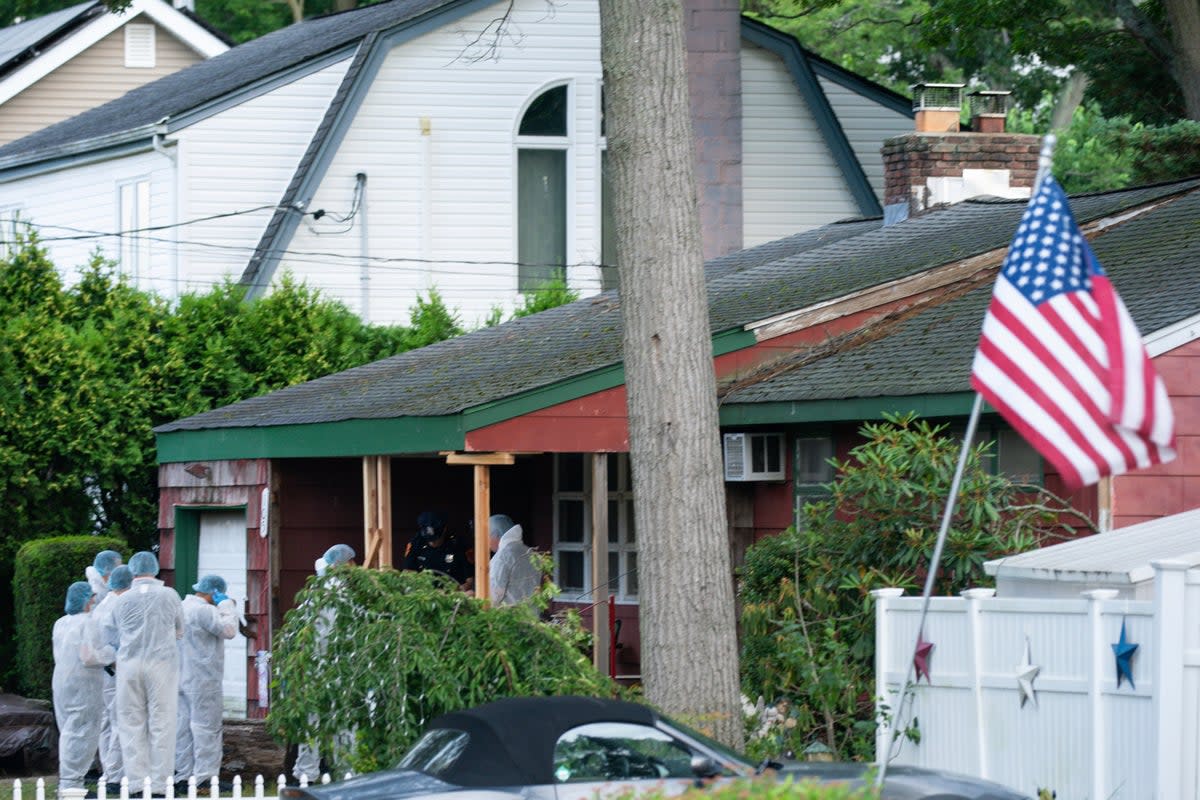Voices: Gilgo Beach’s ‘normal man turned serial killer’ is not as surprising as you may think

While news of the arrest of Long Island resident, Rex Huermann, on multiple counts of murder may have sent ripples of shock within his community, the revelation that a “normal” man was capable of such heinous acts of violence was hardly surprising for sex workers and advocates. Violence - including infrequent, but horrendous instances of serial predators and killers - is too often a reality for those engaged in sexual labor.
Media coverage has typically focused on dissecting the police investigation, and now the killer’s biography. Of course, the media has long been interested in stories of serial killers preying on sex workers, and there has been no shortage of such cases. From the sensationalist reporting of Jack the Ripper in Victorian-era London to the Yorkshire Ripper case in 1970s England, from Robert Pickton’s terrorizing of Indigenous women in Vancouver (1990s) to Seattle’s “Green River Killer,” (1980s-90s), serial predators have long targeted people in the sex trades. The Dallas police have just arrested a man on suspicion of the murders of three sex workers.
The link between serial killers and sex workers elicits morbid curiosity, but far less attention is paid to why and how sex workers are rendered vulnerable in the first place. These killers sometimes point us to the causes. Gary Ridgway (aka the Green River Killer) stalked and murdered scores of women in Washington and Oregon until his eventual arrest in 2001. He stated that he chose to target sex workers out of his hatred for them, because he knew that he could “kill as many of them as I wanted without getting caught,” and because he saw himself as surpassing the police in his ability to “control” sex workers. As Ridgway suggests, certain killers prey on sex workers because criminalization renders sex workers social outsiders, those whose disappearance and death are presumed to provoke little public response. Those who are, in some sense, already hunted by law enforcement.
“If you think cops deserve respect because their job is dangerous, then I’ve got some news about sex workers that will blow your mind...” This witticism has become a recurrent catchphrase within sex worker communities in recent years. The macabre humor subtly upends social conventions that imagine police as protectors and sex workers as abject miscreants, those who are to be policed for the public good. As I, and many other scholars, have argued, violence against sex workers is not inherent to the trade, but the result of policies and practices that criminalize and marginalize people engaged in sexual labor. Researchers have found that sex workers experience high rates of violence and that the complex web of laws and policies that criminalize commercial sex are a key causal factor in this violence. Far from being protectors, law enforcement agents often harass and perpetrate violence against people in the sex trades, taking advantage of their vulnerability to criminal penalties. It is no wonder then, that sex workers are unlikely to report crimes or trust police to take abuse seriously.
In 2010 - the same year that the remains of some of the victims were found on Gilgo Beach - Craigslist removed its adult services section. Huermann’s victims utilized Craigslist erotic/adult services section to advertise. Relatively affordable and accessible, this Craigslist section was a vital tool for many sex workers. Sex workers, like most of us, depend upon the Internet to conduct business and, importantly, to screen clients and share safety information with other sex workers. Indeed, researchers have found that Craigslist’s erotic advertising page may have prompted a 17 percent decrease in the female homicide rate.
At the same time the Gilgo Beach murderer was preying on sex workers, state and federal governments were renewing their campaigns against commercial sex. In 2018, Craigslist would remove its entire personals section in advance of the passage of the Fight Online Sex Trafficking Act (FOSTA). After FOSTA’s passage, internet platforms cracked down on any speech related to commercial sex or sexuality. In the years since, sex workers have reported increased rates of economic and housing precarity, and an increase in street-based sex work (often facilitated by exploitative third parties) where they may have less autonomy to negotiate and where they face greater risk of violence.
High-profile crimes (such as serial killers) present an opportunity for policymakers to appear as if they’re committed to fighting against “exploitation” of women by attacking the platforms or advertising sites themselves. But these campaigns do not end sex work, they simply force sex workers to seek out different venues and platforms. In doing so, polices such as FOSTA further endanger these people engaged in sex work.
The violence that befell Megan Waterman, Melissa Barthelemy, and Amber Costello was a spectacularly hideous manifestation of the routinized, systemic violence of criminalization. And yet, for many, the threat posed by serial predators can feel so distant that news about them can serve as a source of entertainment. For sex workers, the threat is far more proximate. People I know lost loved ones to the Green River Killer. It is critical that we take the opportunity presented by such cases to demand the kinds of policy and socioeconomic changes that would grant people in the sex trades safety and dignity, beginning with the decriminalization of commercial sex. Without these demands for change, accounts of such killers will function as just another brutal post-mortem.
Dr Jayne Swift is an independent scholar and managing editor of the Gender Policy Report.
